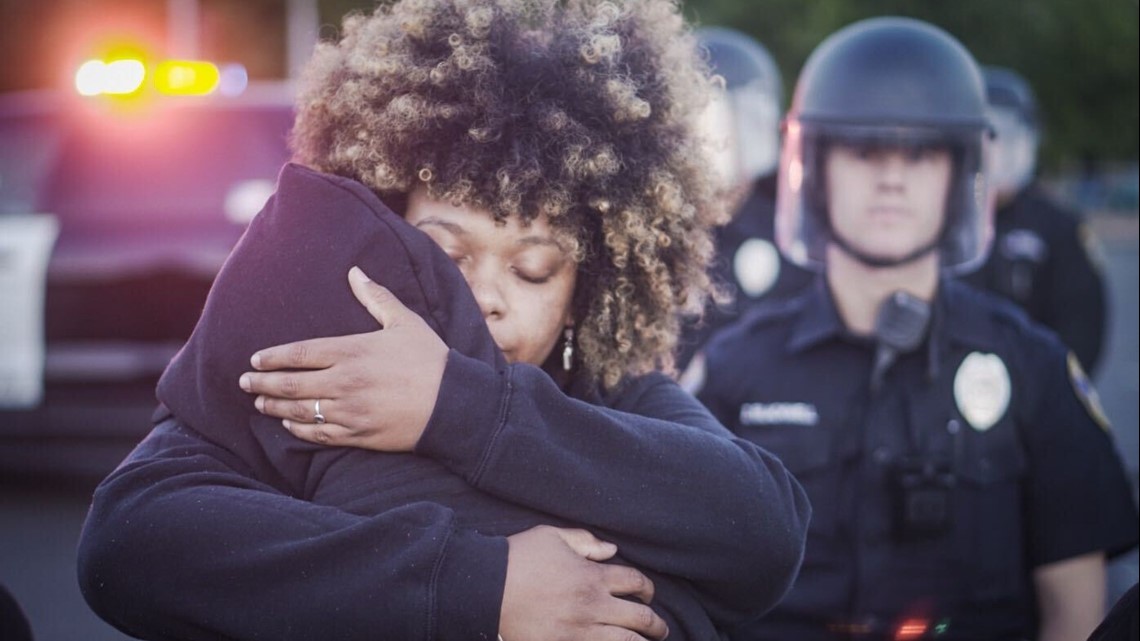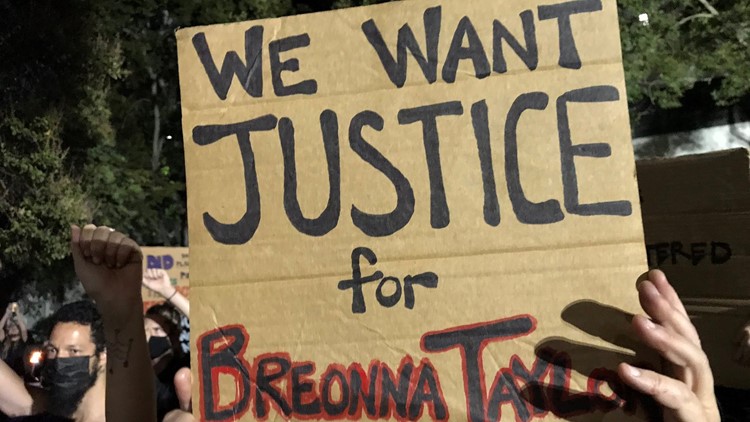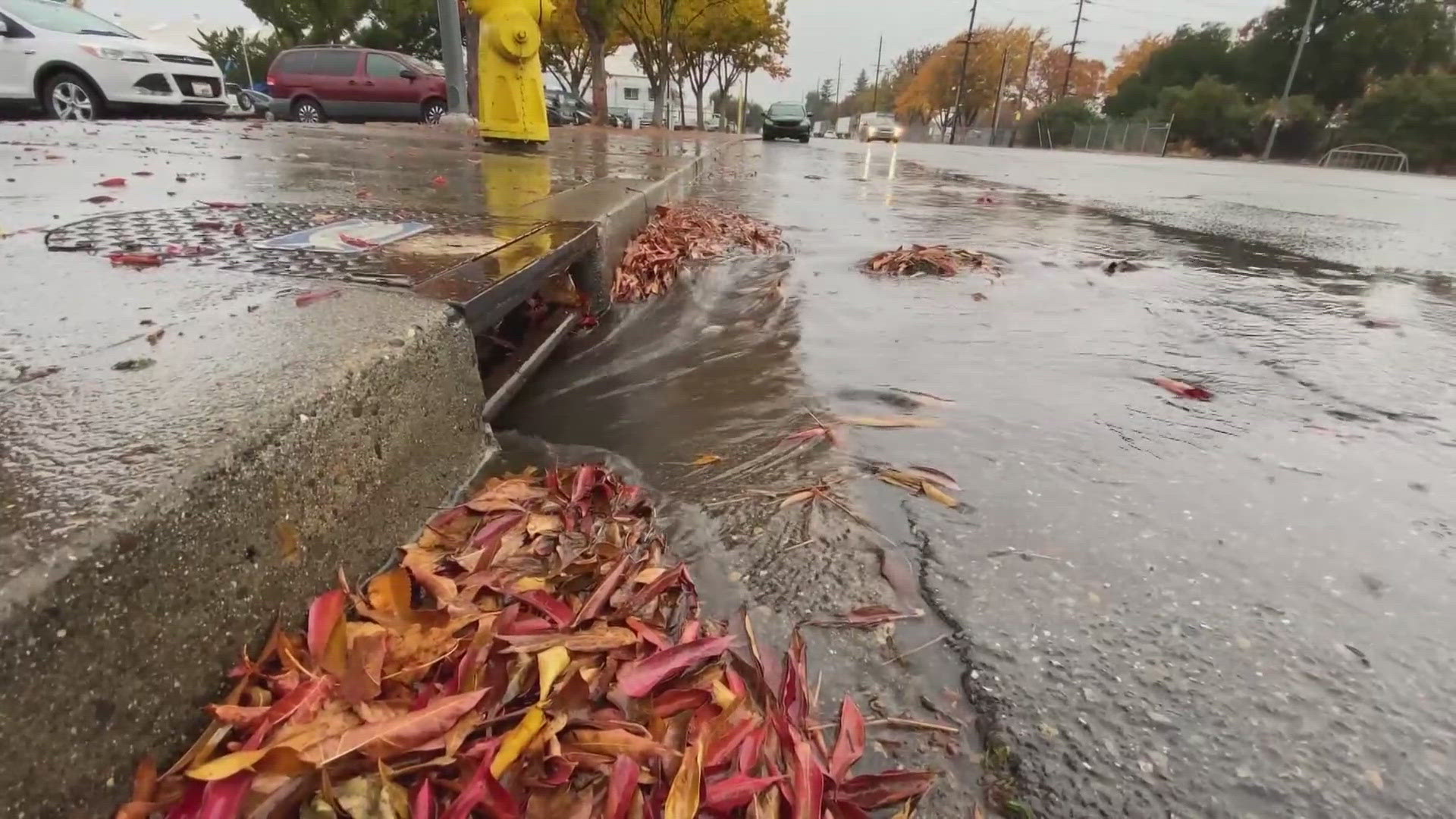Helen Jones is in a long haul fight to convince people their vote matters. An activist with Black Lives Matter, the slow pace of progress makes her job difficult.
For the 2020 general election, Jones texted thousands of people from her Watts studio each week about voting. Then she turned her texting to Georgia’s Senate runoff elections, held today.
“Their vote is their voice,” she said.
Last year she had to persuade her own son to vote. The debate happened during a music production session, between the mixing of beats.
“How do you feel about voting?” she recalled asking her son, Bruce Phillips, 24.
She said her son knew her activism was important, but had his own personal feelings about it.
“Our vote really doesn’t matter,” she recalled him saying. “It’s bad for us out here. We can’t find no jobs. We can’t get any help.”


When she asked how his friends felt about voting, he said “They feel the same way.”
Jones is familiar with the cynicism of the younger generation because she lived it. She said that growing up in Watts, it seemed she or her friends were roughed up by police daily. It was a time when a walk for snacks to the store meant getting frisked on the way.
“They feel like the system doesn’t care about them,” Jones said. “How are they going to feel their vote matters, when they don’t even matter?”
Jones is a community organizer with Black Lives Matter and Dignity and Power Now, a Los Angeles nonprofit assisting incarcerated people. She spends her days trying to spark hope in others that their individual votes, when added together, can equal change. In a life marked by personal loss, she knows that progress comes slow, and the work is draining.
Still, she follows a line of Black leaders who encourage participation in American institutions, despite being on the receiving end of their harm.
“I lost a child in this fight,” Jones said.
In late February 2009, Jones visited her son, 22-year-old John Horton, at Men’s Central Jail where he was in custody. He said he was reading the bible, she recalled, and told her he loved her. It would be their last conversation.
Horton was dead about a month later inside Men’s Central Jail. Jones filed a wrongful death lawsuit, alleging that “deputies physically abused, assaulted, emotionally abused, and/or facilitated Horton’s death by hanging while he was in solitary confinement.”
According to court documents, the coroner’s autopsy found that Horton had a ligature mark around his neck, hematoma in his liver and kidney area, and signs of blunt force. The defendant’s hired pathologist said Horton’s death was caused by asphyxia due to self-inflicted hanging. Yet the pathologist hired by Jones determined her son’s death was from “internal bleeding in combination with the failure to provide immediate medical care.” Jones contends that deputies beat her son to death and staged his suicide.
The county paid her a settlement. Now she’s pushing for criminal charges.
“Once I get into a fight… I never stop. This is a lifetime fight,” she said.
For many, it’s a familiar fight. The police killing of George Floyd in Minneapolis in May 2020 prompted outrage across American cities, catapulting the issue of racial injustice into the election. Jones said the marches, speeches and get out the vote efforts led to a stronger turnout among voters of all backgrounds.
“This election was kind of painful… But it was also inspiring,” she said.
In California’s 12 largest counties, turnout in diverse areas increased more than white-dominant areas from the 2016 general election, a Votebeat analysis showed. Importantly for Jones, her surviving son also voted.
Advocates including Melina Abdullah, a Black Lives Matter – Los Angeles leader and Pan-African Studies professor at Cal State Los Angeles, pointed to a string of election victories that followed months of energized rallies across the region.
There was the passage of Measure R — granting Los Angeles County’s sheriff oversight body the power to subpoena — and Measure J, which requires at least 10% of locally generated, unrestricted general funds to be used for a slew of possible community alternatives to incarceration.
“It was absolutely a defund-the-sheriff measure,” Abdullah said.
And there was the defeat of Los Angeles District Attorney Jackie Lacey, a goal of Jones and other advocates for three years.
“Nobody thought we could do it,” Abdullah said. “Whether it rained, whether it was a holiday, we protested outside her office. We walked neighborhoods with no money. This was with just regular people, people like Helen Jones.”
Advocates point to election victories like these as reason to vote. No one suggests that individual victories create their vision of true freedom — a world without jails.
“We can’t afford to completely disengage from systems that we know are still oppressive. As we’re engaging those systems, we’re also trying to undo them,” Abdullah said.
That’s why for Jones and other advocates, the ballot is one of many tools alongside protests, panels and organizing. Recently, she and other Black Lives Matter members have been meeting with new District Attorney George Gascón.
Abdullah said that as a mother, she’s grateful for Jones’ continued leadership. She noted that Black mothers respond differently to the tragic loss of a child. “Some of them have to go into deep mourning,” Abdullah said. “For Helen Jones, a lot of her healing comes with the power that she has to transform this system.
“No matter how hard Helen struggles, she’s never going to be able to bring John back. But she is helping to transform this world so that my children can be safer.”
For now, Jones continues producing music with her label, HeadHigh Entertainment, which she launched in 1998 to help young people create and get “off the streets of Watts.” She also volunteered to reach as many Georgia voters as possible until today’s election.
Her hope remains that with every text, another voter might turn out, and with every election, that another step of progress can be made.
“Change is not going to come by voting alone,” Jones said. But “we have to at least try.”
This coverage is made possible through Votebeat, a nonpartisan reporting project covering local election integrity and voting access. In California, CalMatters is hosting the collaboration with the Fresno Bee, the Long Beach Post and the UC Berkeley Graduate School of Journalism.



